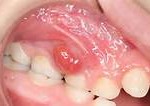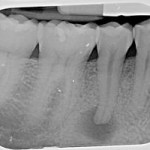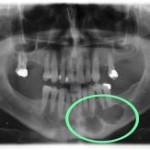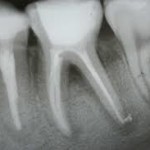Infection occurs when bacteria penetrate tooth structure and reach the pulp inside. Cavities, if left untreated, harbor bacteria and cause infection.
Patients with advanced periodontal disease may develop gum infection. This results from bacteria entering the periodontal (gum) spaces between the bone and the roots.
Many infections manifest in a form of abscess, where a raised lesion is formed next to the infected teeth or gum (commonly known as gum boil).
Treatments for infection are root canal procedures, incision and drainage (surgery to release pressure and pus) or extractions.
Consequences of Poor Dental Care
Here is a list of just a few of the conditions and illnesses that might be linked to your teeth and mouth:
- Cardiovascular considerations. Research has linked several types of heart issues to poor oral hygiene. Oral-care-related cardiovascular diseases include clogged arteries, bacterial endocarditis, and stroke.
- Birth and pregnancy. Premature childbirth has also been associated with gum issues. The pathogenic organisms that live in the mother’s mouth can end up in the amniotic fluid or placenta, which may lead to premature birth. What’s worse, it may be too late to treat gum disease during a pregnancy, as the infection likely will have already spread throughout the woman’s body.
- Diabetes. Diabetes increases the risk of dry mouth, gum disease, tooth loss, dental caries, and a number of other mouth infections. Reciprocally, poor oral hygiene can also make it more difficult to manage diabetes, as mouth infections can cause blood sugar levels to rise.
- Osteoporosis. The early stages of osteoporosis frequently manifest themselves in the teeth. Usually, dentists can identify the signs of osteoporosis in routine dental X-rays. Identifying the culprit early through proper dental care can improve prognosis.
Gum Disease and Heart Disease
Heart Disease
 Several studies have shown that periodontal disease is associated with heart disease. While a cause-and-effect relationship has not yet been proven, research has indicated that periodontal disease increases the risk of heart disease.
Several studies have shown that periodontal disease is associated with heart disease. While a cause-and-effect relationship has not yet been proven, research has indicated that periodontal disease increases the risk of heart disease.
Scientists believe that inflammation caused by periodontal disease may be responsible for the association.
Periodontal disease can also exacerbate existing heart conditions. Patients at risk for infective endocarditis may require antibiotics prior to dental procedures. Your periodontist and cardiologist will be able to determine if your heart condition requires use of antibiotics prior to dental procedures.
Stroke
Additional studies have pointed to a relationship between periodontal disease and stroke. In one study that looked at the causal relationship of oral infection as a risk factor for stroke, people diagnosed with acute cerebrovascular ischemia were found more likely to have an oral infection when compared to those in the control group.




